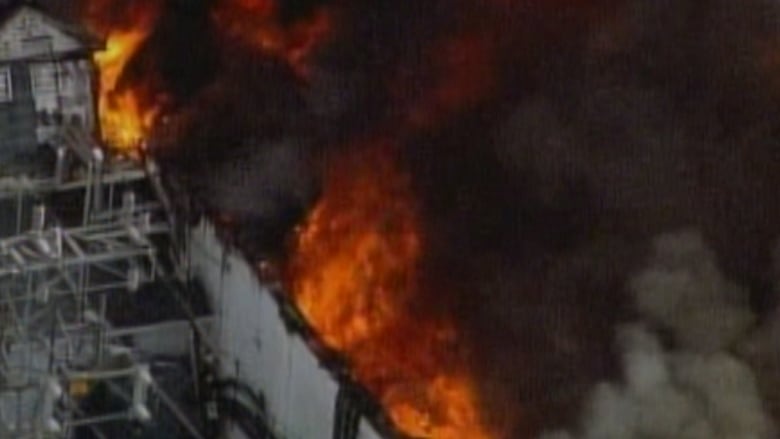10 years later Chapman's Ice Cream fire is a recipe for how to recover from a disaster
Family run ice cream empire faced catastrophe, but survived and thrived in the aftermath

It's been 10 years since Ontario's largest ice cream producer, Chapman's, suffered a major setback that would have closed most businesses for good. But instead the Chapman's Ice Cream story is taught in business schools as a case study — not how to survive a disaster, but thrive in the aftermath.
Company president Penny Chapman says the plan had been to expand the century-plus old wooden creamery building that served as home to Chapman's Ice Cream since she and her husband David founded the business in Markdale, Ont,. in 1973.
"They were up in the rafters welding and the spark lit it up and we couldn't stop it," she recalls. "Wood that old, it just went so fast and at first I thought we'll be alright."
By the end of the day it was clear that the building would be lost.

Graciela Robertson lives in the town of 1,400 — where at the time, one out of every three people worked at the Chapman's plant.
"We were all watching to see what's going to happen, wondering what would happen to this town if we lose such a big employer," she said.
But even as the factory burned to the ground, Chapman says while some business owners would be tempted to pack it in after such a catastrophe, she, her husband David and son Ashley were making plans to rebuild.
"I mean there just was not a moment's hesitation. We won't quit. We will carry on for our people, the town and everything else," she said. "We are stubborn."
Ashley Chapman, Vice-President of Chapman's Ice Cream says the company had a head start thanks to some smart decisions. His parents had business interruption insurance and enough inventory in a distribution centre a few minutes down the road to keep them going while they rebuild.

But he said they also had plain good luck.
"I was going through the mail and there is a flyer that said 'Fire Sale' of an ice cream factory in Florida. Big, huge, gigantic factory. So it was just this weird kind of coincidence," he says.
With equipment from that plant and from other sources, plus help from smaller producers around the province, within seven weeks Chapman's was producing ice cream again and no one missed a single paycheque.
Since then a new plant — called "Phoenix" — has risen from the ashes and is the heart of an expanded facility now employing twice as many people.
Still strolling the floor — Ashley Chapman greets most of them by name.
He says 10 years ago — after all the family recipes were destroyed in the fire, it was the workers on the shop floor who saved the business.
"They had all the product codes — memorized everything. So in a couple of hours sitting down the mix makers, boom. Spat out from memory all of our recipes," he says.
"And that's why as a company then and now, we believe that people are the strongest thing that a company has. And you gotta treat them well because if it wasn't for those mix makers. We would have lost one of the most important things to our business."
Eric Robertson has been a friend of Ashley's since grade school and owns Grey County Real Estate, located in downtown Markdale. He shudders to think what would have happened to the town if Chapman's had left.
"I know we'd be getting close to a ghost town," he says. "I mean we were an industrial small town. We had plenty of factories in the 90s. Like everything else they all left and Chapman's was the only employer in the area."
Chapman's has given back to the community — donating millions to hospitals, sports facilities and schools — showing that the family knows its success is tied to the people who live here.
Local Councillor Dane Nielsen says it's appreciated that the company has given back
"Chapman's and Markdale are synonymous with each other. They are part of the community and important to it — economically and socially."

